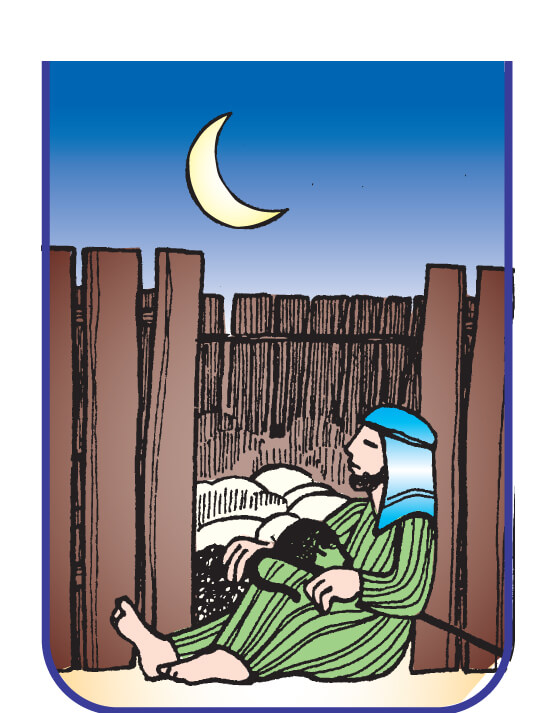
Sunday Readings: Acts 2.14,36-41; 1 Peter 2.20-25; John 10.1-10
I tell you truly, I am the sheepgate. All who came before me are thieves and marauders whom the sheep did not heed. I am the gate. Those who enter through me will be safe. They will go in and out, and find pasture. The thief comes only to steal, slaughter, and destroy. I came that my sheep might have life and have it more abundantly (John 10.1-10).
John’s gospel reflects tensions in the last decades of the first century between Jews who follow Jesus and those who continue to follow the law of Moses. In these struggles the Christian community identifies Jesus with Wisdom, who was with God from the beginning and was God, who became human and dwelt among us (John 1.14). To other Jews this is blasphemous, reason to put believers out of the synagogue.
More than ten times John’s gospel puts statements in Jesus’ mouth that use the divine name to identify him with God. I am the good shepherd. I am the sheepgate. I am the resurrection and life. I am the bread come down from heaven. I am the way, the truth, and the life.
Today we contend with our own tensions. Will the Catholic Church ordain women deacons? What about intercommunion with other Christians? The prohibition “only Catholics in good standing can receive communion” tends to alienate rather than welcome family and friends at weddings and funerals. Can divorced and remarried Catholics receive communion?
For our contentious times, Pope Francis articulated four principles in his first encyclical Joy in the Gospel, which put his faith in the Holy Spirit into action.
Principle 1: Time is greater than space. To build and develop character or communities requires time and process. Growth takes time. Peace building takes time.
Principle 2: Unity is greater than conflict. “The Spirit can harmonize every diversity,” Pope Francis writes in his encyclical Laudato Si’ about repair our common home, the Earth. We are one Earth family. We can negotiate differences rather than insist on our way or no way.
Principle 3: Realities are greater than ideas. The pope’s report on the family synod Amoris Laetitia envisions Christian life and marriage unfolding as a process and divorced people needing ongoing support rather than being cut off from the Church community. People need time to open their hearts to grace.
Principle 4: The whole is greater than the part. This guideline challenges us to see the world is global and local. Pope Francs calls us to broaden our horizons and see the greater good that will benefit us all, yet to work also on a small scale in our own neighborhoods.
What do you value about these principles that see life as a growth process? What kind of time has grace needed in your life?